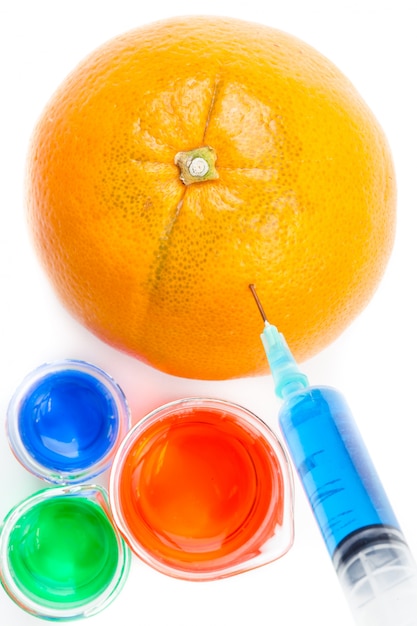GMOs: A Danger to Us All
Genetically Modified Organisms (GMOs) pose significant risks to both our environment and our health, and the evidence supporting this is undeniable. Environmentally, GMOs have led to the creation of superweeds that devastate farmland and the elimination of some organisms from ecosystems, causing new superbugs to emerge. Health-wise, the situation is equally alarming. Researchers who have found GMOs to be unsafe face strong opposition from industry supporters determined to protect their interests. Despite this backlash, research has consistently shown that consuming GMOs dramatically increases health risks, including the potential survival of toxic DNA from these plants after digestion. This DNA has even been detected in the blood of pregnant women and their fetuses.
Until laws change to ban these harmful products, the best defense we have is to avoid them. Here’s a look at the top GMO foods and ingredients you should steer clear of.
Top GMO Foods and Ingredients to Avoid
Aspartame
Aspartame is a chemical that can cause neurotoxicity, according to the EPA. Despite this, the FDA continues to approve its use. Aspartame is made from aspartate, methanol, and phenylalanine. Once ingested, methanol is converted into formaldehyde, which is considered toxic and hazardous. Research has shown that aspartame has highly carcinogenic effects and may be linked to leukemia and non-Hodgkin’s lymphomas. To avoid these risks, it is best to steer clear of aspartame and any products containing it.
Corn
GMO corn, particularly Bt-corn (maize), has been shown to cause serious health concerns, including damage to the kidney, liver, heart, adrenal glands, and spleen. Even mainstream media, like MSN, have reported on its potential toxicity. Opting for organic corn can reduce exposure to these dangers, but it’s essential to stay vigilant, as corn appears in various forms in many products.
Sugar Beets
Sugar beets make up about 35% of the world’s sugar production, but GMO versions are treated with toxic chemicals, including glyphosate. To avoid GMO sugar beets, look for products sweetened with organic agave or raw honey instead of sucrose.
HFCS (High Fructose Corn Syrup)
Made from GMO corn, HFCS goes through a complex manufacturing process that can introduce mercury into the final product. Research has linked HFCS to weight gain and Type II diabetes. Given these risks, it is better to avoid HFCS altogether.
Soy (Lecithin)
Most soybeans are genetically modified and associated with various health concerns. Soy lecithin, a byproduct of soy oil processing, typically contains solvents, pesticides, and allergens. Always choose organic and fermented soy products, and steer clear of soy lecithin.
Corn Starch
Corn starch, made from genetically modified corn, offers no nutritional value and is known to cause digestive issues. Since the 1970s, concerns have only grown with the introduction of GMO corn. It’s advisable to avoid corn starch whenever possible.
Tomatoes
Genetically modified tomatoes have been found to have less antioxidant activity and overall reduced nutritional value compared to their natural counterparts. It’s best to choose non-GMO or organic tomatoes to maximize health benefits.
Sausage
Most sausages contain corn syrup or corn syrup solids, posing a risk of GMO contamination. For a safer option, purchase sausages from a local butcher specializing in organic, free-range meats.
Ice Cream
Ice cream often contains HFCS, corn syrup, corn starch, and rGBH. To avoid consuming genetically modified DNA and bovine growth hormones, choose organic brands or make your own using organic ingredients.
Non-Organic and Synthetic Vitamins
Many vitamins use GMO corn and soy products as their base and may also contain aspartame and hydrogenated oils. Look for vitamins labeled as organic or non-GMO to ensure safety.
Infant Formula
Unless specified as organic, most infant formulas contain milk with rGBH and genetically modified soy. These GMOs can contribute to chronic, long-term health conditions. Choosing organic formulas is strongly recommended.
Beef
Cattle feed often contains GMO alfalfa, corn, and soy, which are then integrated into the meat. For a healthier option, opt for organic, grass-fed beef.
Milk
Monsanto’s recombinant Bovine Growth Hormone (rGBH) is used to increase milk production in cows, resulting in milk that may contain hormones, reduced healthy fatty acids, and higher infection rates. Choose organic or goat milk and monitor for milk products in other foods.
Alfalfa
Despite being halted previously, GMO alfalfa has returned to fields as of this year. Cross-pollination with non-GMO plants is likely, affecting dairy and beef industries. Organic alfalfa should be prioritized.
Vegetable Oil
Typically made from GMO corn, soybean, cotton, or canola oils, vegetable oil often contains GMOs. Unless labeled organic, it’s best to avoid it.
Canola Oil
Canola oil, derived from genetically modified rapeseed, is widely used. For safer cooking options, choose oils specifically marked as non-GMO.
Margarine and Shortening
These products are another form of vegetable oil and contain similar GMO concerns. Organic butter is a healthier alternative.
Hawaiian Papaya
GMO Hawaiian papaya, designed to be virus-resistant, contains DNA from the Ringspot virus. To avoid this, choose non-GMO or organic papaya.
Squash
Many squash varieties have been genetically modified for disease resistance. Opt for organic squash to avoid GMOs.
Flax
Illegally grown in Canada, GMO flax has led to widespread contamination. Ensure the source of flax products to avoid potential risks, particularly from Canadian and some EU flax.
A Final Thought…
Avoiding GMOs starts with seeking out foods labeled as non-GMO. If you’re unsure, ask your store or the product’s manufacturer. Let companies know you won’t support products containing GMOs. Once GMOs become a marketing liability, the industry will likely turn away from them.

